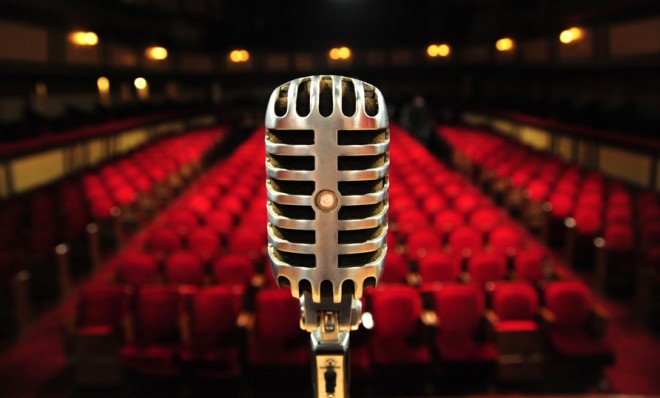Why you hate the sound of your own voice
Explained

A free daily email with the biggest news stories of the day – and the best features from TheWeek.com
You are now subscribed
Your newsletter sign-up was successful
I'm always taken aback whenever I transcribe an interview I've conducted. Mostly this is because the shrill-voiced bro stammering questions sounds nothing like me.
I'm not the only one who cringes at the sound of his own voice. Almost every journalist I know hates hearing his or her voice played back; it always sounds a pitch or two higher than what we're accustomed to.
As it turns out, there is a pretty simple scientific explanation for the phenomenon of voice-self-hatred, and it has to do with how sound reaches our ears.
The Week
Escape your echo chamber. Get the facts behind the news, plus analysis from multiple perspectives.

Sign up for The Week's Free Newsletters
From our morning news briefing to a weekly Good News Newsletter, get the best of The Week delivered directly to your inbox.
From our morning news briefing to a weekly Good News Newsletter, get the best of The Week delivered directly to your inbox.
Say you're listening to someone else's voice. Morgan Freeman, for example:
In order for your brain to register that you're listening to Mr. Freeman's buttery vocals, his voice has to travel through the air via external vibrations. Those sounds then ripple down your ear's external auditory canal, which eventually causes your eardrums to reverberate. From there your ear's spiral-shaped, fluid-filled cochlea fires off messages to the brain, indicating that you're listening to the soothing words of a man who once played God.
The same thing happens when we hear ourselves in conversation — with one key difference. Those same sounds rumble through our bones to tickle our eardrums, too. As a result, our voices sound deeper and more pronounced. More Barry White-ish, if you will. As our friends at Mental Floss explain it, "Your bones enhance deeper, lower-frequency vibrations and give your voice a fuller, bassier quality that's lacking when you hear it on a recording." What we're actually hearing when we speak is a combination of air- and bone-conduction.
Unfortunately, that means no one else hears you that way. That voice in your best friend's embarrassing six-second Vine clip is how other people actually hear you. All. The. Time.
A free daily email with the biggest news stories of the day – and the best features from TheWeek.com
"When [someone] listens to a recording of their voice speaking, the bone-conducted pathway that they consider part of their 'normal' voice is eliminated," Dr. Chris Chang, an otolaryngologist, tells NBC News. "And they hear only the air-conducted component in unfamiliar isolation — what everybody else actually hears."
But, hey! You can take solace in the fact that the same auditory rules apply to everyone. Which means that even the golden-tongued Mr. Freeman could theoretically dislike the sound of his own voice as well. (But probably not.)
-
 Is Andrew’s arrest the end for the monarchy?
Is Andrew’s arrest the end for the monarchy?Today's Big Question The King has distanced the Royal Family from his disgraced brother but a ‘fit of revolutionary disgust’ could still wipe them out
-
 Quiz of The Week: 14 – 20 February
Quiz of The Week: 14 – 20 FebruaryQuiz Have you been paying attention to The Week’s news?
-
 The Week Unwrapped: Do the Freemasons have too much sway in the police force?
The Week Unwrapped: Do the Freemasons have too much sway in the police force?Podcast Plus, what does the growing popularity of prediction markets mean for the future? And why are UK film and TV workers struggling?